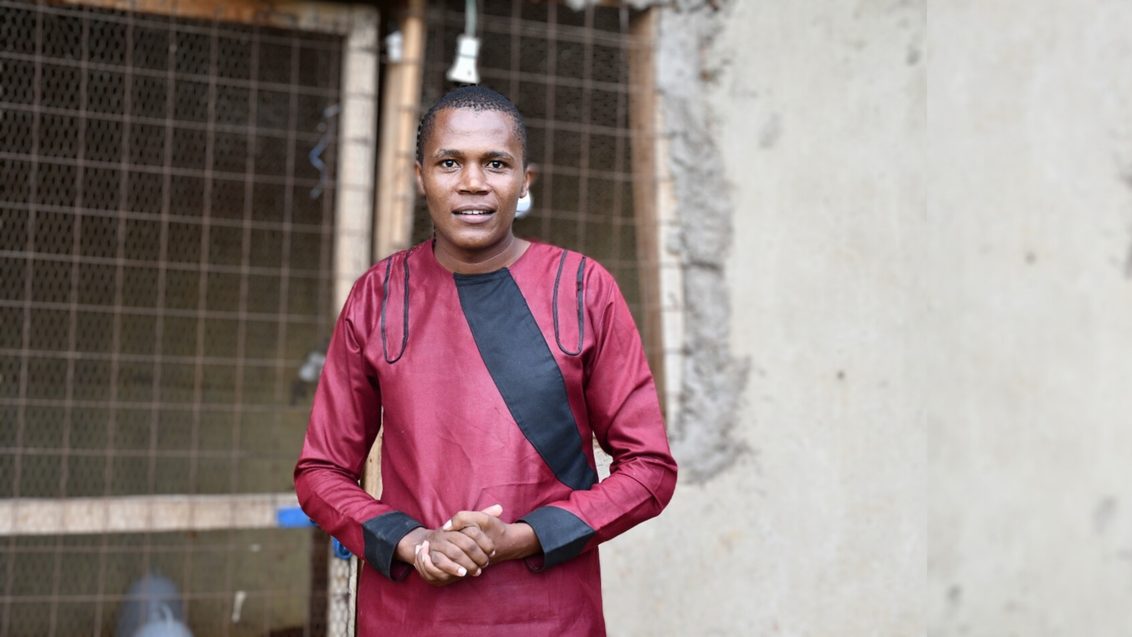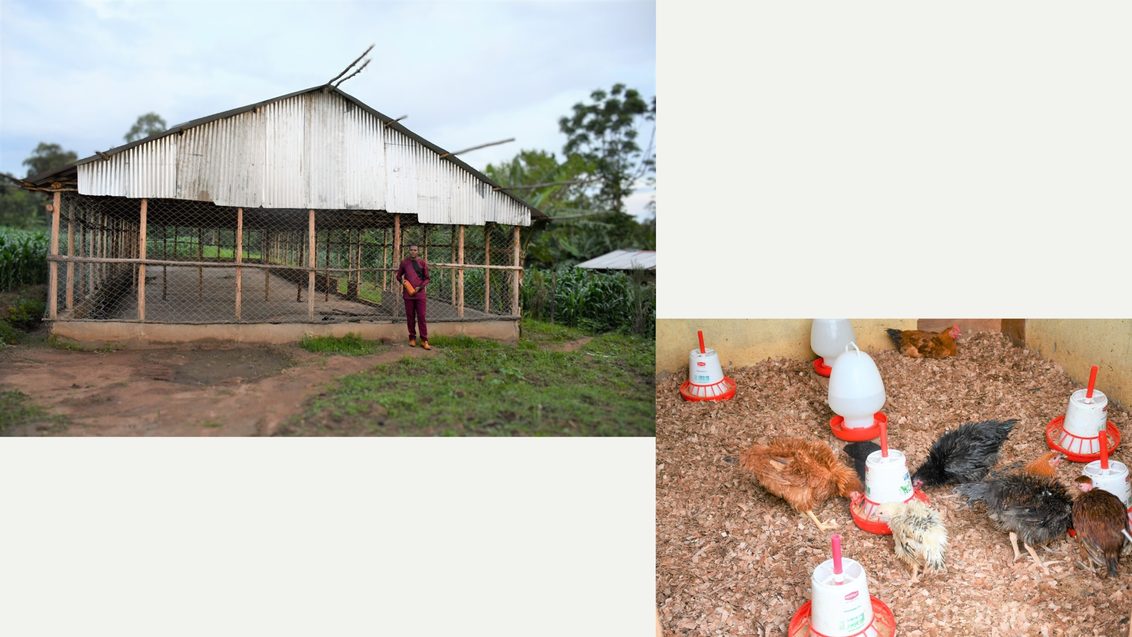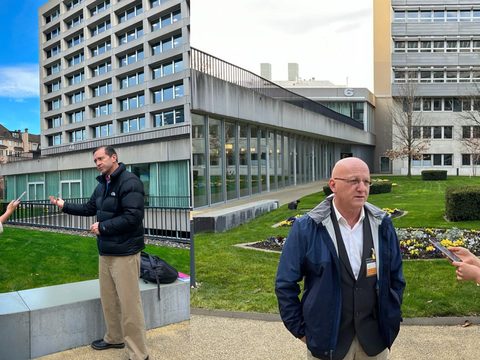Small steps feather nests

Assisted by Small Grants Initiative funding, piloted by the Foundation and supported by the Nutrition in City Ecosystems (NICE) project, a number of enterprising food producers in the region of County, Kenya, are finding deserved success.
Lennson Mumo’s passion for poultry farming began in boyhood when he used to watch his parents rearing local kienyeji chickens. However, little did this student of Business Administration at Kibabii University imagine that one day he would be on the verge of major success in the same profession: establishing on land in Lumasa, Bungoma County, a poultry farm that can contain 2000 birds while providing permanent and casual employment to several workers.
“My story is one of resilience and small steps towards success,” says Lennson, who faced many financial and other obstacles on his journey to becoming a university student and business entrepreneur. He created Neon-Hen Farm in 2018. “When I started, I only had eight rooms where I housed 500 day-old chicks,” he says. However, his efforts to establish a poultry farm were noticed by a local agricultural officer and brought to the attention of the NICE project team. (The small grants initiative was piloted by Syngenta Foundation for Sustainable Agriculture with support from the Nutrition in City Ecosystems (NICE) Project. The grant implementation began in September 2022 and focused on increasing the production of poultry and African leafy vegetables among five groups in Bungoma and Busia Counties).
The KSh100,000 Lennson received from the Small Grants Initiative was the springboard he needed to expand his business. He purchased 1.5 tonnes of chicken feed – a huge investment due to the cost of maize. Rising grain prices are partly due to Kenya’s reliance on imports to maintain supply; these constraints are compounded by adverse weather events such as poor rainfall and drought, as well as the effect of global circumstances such as the war in Ukraine.
Whereas Lennson’s mother reared chickens by traditional free-range means, her son’s business model focuses on more intensive methods of breeding, confining chicks to housing units. In this way, he can accommodate higher numbers of birds while maximizing on space. He breeds from day-old chicks which can then be sold to small-scale farmers. “We also offer the farmers technical support and training in poultry management,” says Lennson.
While reflecting on the highs and lows of poultry farming – the challenges of feed costs as well as infrastructure and transport problems (poor roads and the lack of suitable vehicles) – Lennson Muma acknowledges that his business is going from strength to strength. He has built a network of customers, both in the local community and further afield, including hotels and other institutions. He is expanding the farm’s housing stock to accommodate an increasing number of birds. He has enrolled in a Masters’ program in Finance and takes care of his family financially. “Through the support I have received from the NICE project and Syngenta Foundation,” says Lennson,
I have been able to attend training on poultry farming and networking opportunities. Now I can start my own hatchery and mentor other young poultry farmers.


